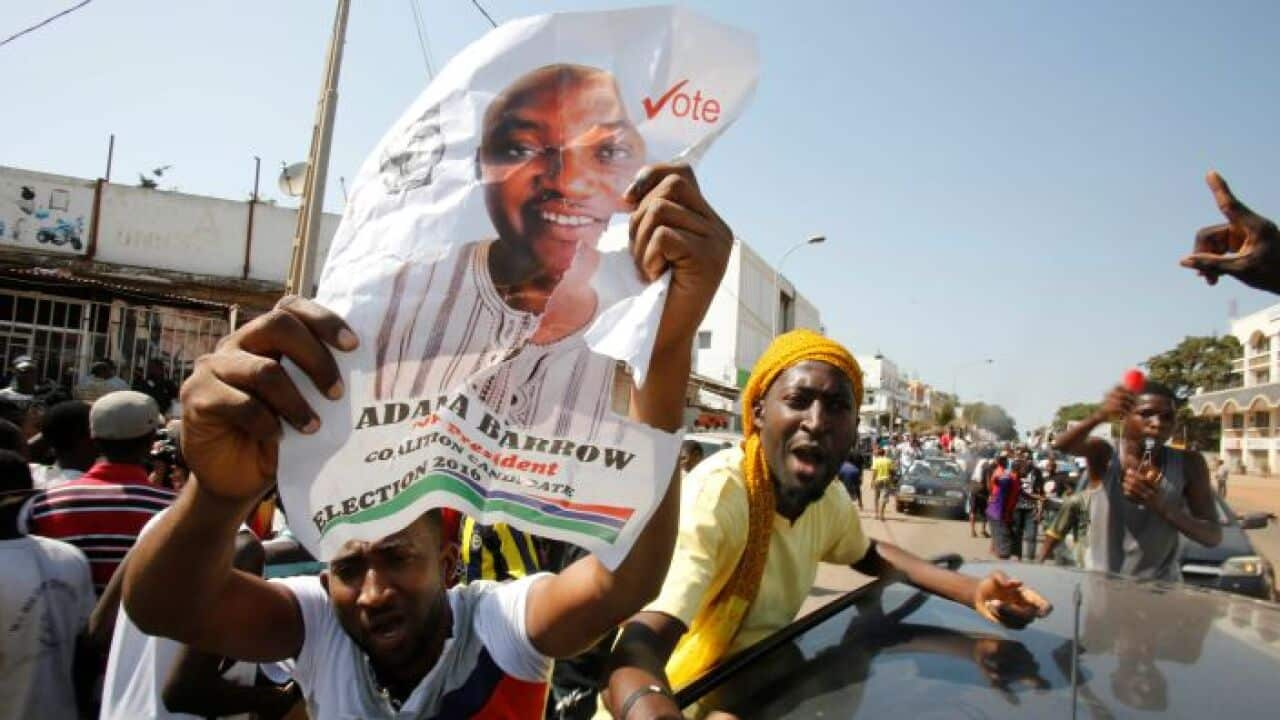Gambia's President-elect Adama Barrow says the country's outgoing leader Yahya Jammeh has no authority to reject the results of December 1 polls, while the United Nations and African Union pile pressure on Jammeh to step aside.
Long-ruling Jammeh on Friday called for another election in the tiny West African country after narrowly losing to opposition leader Adama Barrow, jeopardising what was expected to be Gambia's first democratic transition of power in more than 50 years. He had conceded defeat publicly last week.
The announcement on state television threw the future of the country of 1.8 million into doubt after the unexpected election result ended Jammeh's authoritarian 22-year rule.
It had been widely seen as a moment of democratic hope and a chance to end repression in a country known as a police state.
"The outgoing president has no constitutional authority to reject the result of the election and order for fresh elections to be held," Barrow told reporters in Banjul following an emergency meeting under high security.
"I open up a channel of communication to convince him to facilitate a smooth transfer of executive powers in the supreme interest of this country," he said.
The streets of Banjul were calm on Saturday, although some residents said they were staying at home for fear of violence. A strong police presence remained on the streets.
Under chapter 5 of Gambia's constitution, candidates have 10 days from the declaration of the results to appeal to the Supreme Court.
It was not immediately clear if Jammeh had done that.
As Gambians brace for a tense standoff, international criticism of Jammeh came in fast. Following the United States and Senegal, the African Union on Saturday weighed in, calling Jammeh's statement "null and void".
The UN and regional body ECOWAS called on the armed forces to stay neutral.
Diplomats have voiced private concerns that a faction of security forces from Jammeh's Jola ethnic minority might protect Jammeh, potentially provoking broader conflict along ethnic lines.
Share

